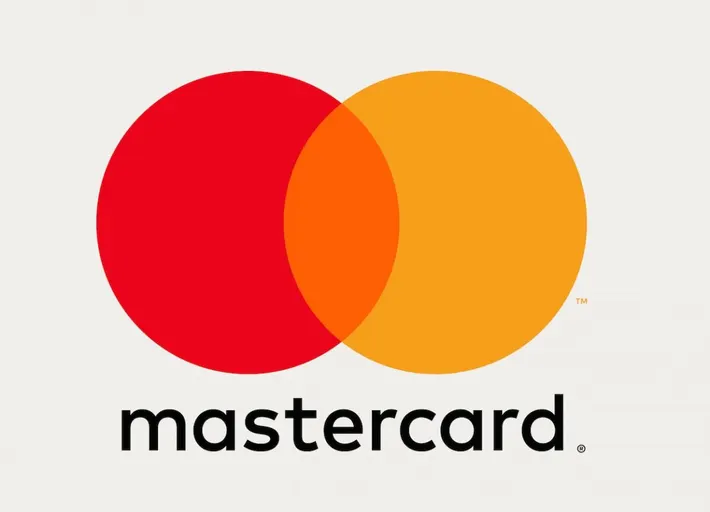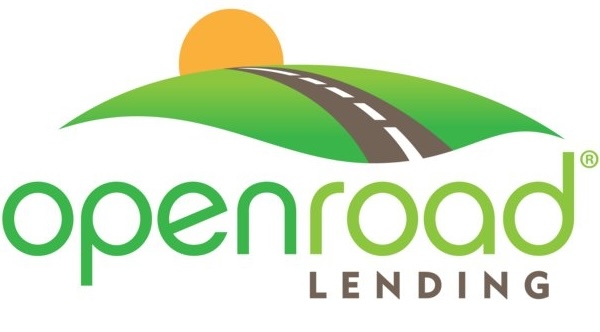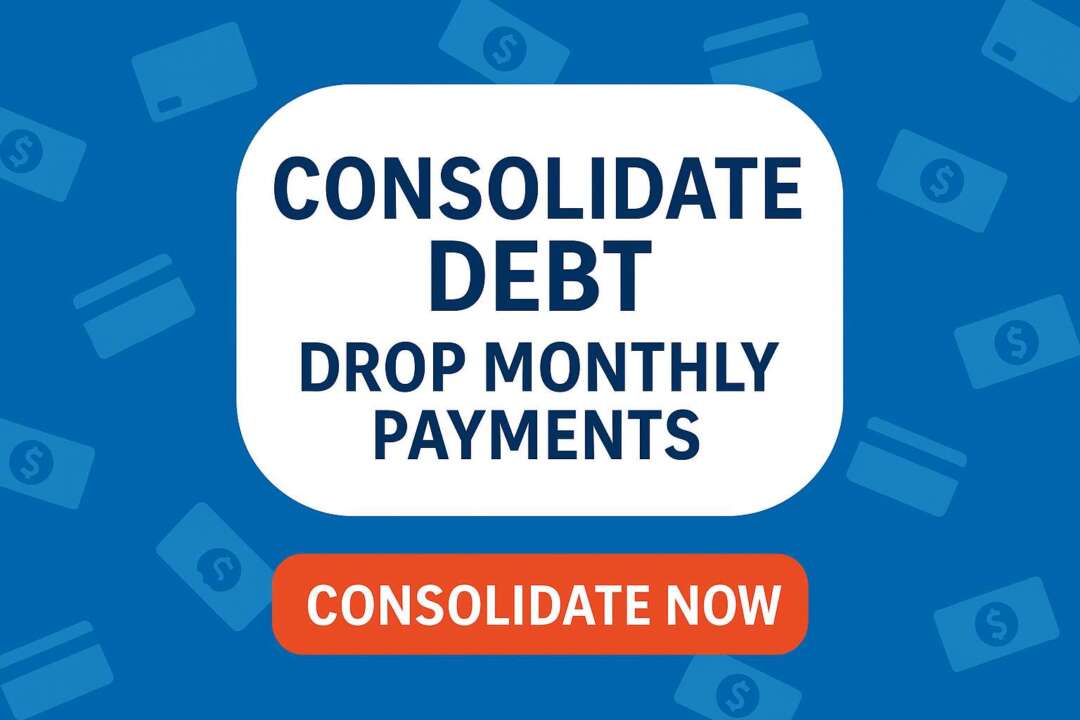
How do credit scores work
Credit scores work by putting a number value on the chance that a person will default on at least one debt in the next two years. The higher the score, the less likely the person is to default on a debt. Credit scores are developed by looking at millions of credit reports over time, to see how factors at one point correspond to defaults later on. Your credit history is reviewed by that algorithm to see how you compare.
This is why you can see major changes in your credit score very quickly. For example, in order to default on a debt, which typically means the account is charged off or at least 180 days past due, you must first be 30 days past due, then 60 days past due. This is how credit scores work and why being past due on any account is so harmful to your credit score.
How is your credit score calculated
Your credit score is calculated by a sophisticated algorithm designed by the credit score developer. The most common are FICO and VantageScore. Both of these companies have multiple credit score algorithms that create credit scores. The exact statistical methods used are not public knowledge. We do know that there are actually multiple “models” within individual scores. These models are the actual calculations for a credit score. These models are coupled with advanced decision trees as well. For example, a credit report with an outstanding collection account will be scored using a different model than a credit report without collections.
Unfortunately, no one can give you an equation to allow you to calculate your own credit score. It simply isn’t as simple as
A * (number of debts) + B * (Credit Utilization) + C * (Age of credit) = credit score
How your credit score affects you
Your credit score affects you by impacting the cost and availability of credit. Having a good credit score will give you access to more credit and at a lower interest rate than having poor credit. Otherwise, a credit score does not affect you at all. Your credit score is not an important piece of information about you as a person.
How your credit score is used
Your credit score is used as an aid to help lenders determine if they should lend you money, and if so, at what interest rate. This is because a credit score is a numeric expression of the risk of you not repaying your debt. A high credit score means you are very likely to repay your debt. A low credit score means you are more likely to fail to repay one or more debts.
Is a credit score used for car insurance
No, your standard credit scores are not used for car insurance. However, car insurance companies often do use a credit based insurance score. So your credit history may be used for car insurance. These scores are very similar most of the time, so good credit habits and a good credit score can help you get a lower rate on your car insurance.
How does your credit score go up
- Have a negative item removed from your credit report (more info)
- Reduce your credit card balance (lower your credit card utilization rate – part 1)
- Increase your credit limit on a credit card (lower your credit card utilization rate – part 2)
- Pay down the balance on your loans
- Bring your past due credit accounts current
- Payoff all of your collections accounts
- Make 6 months of on-time payments on all of your credit accounts
- Don’t apply for credit for 6 months
- Increase the average age of your credit
- Let all negative items on your credit report age by 6 months
How your credit score decreases
- You become past due on a credit account
- You accounts go more than 60, 90, or 120 days past due
- You file for bankruptcy
- You have a new collections account
- Your credit card utilization goes up
- Your oldest credit account closes
- Loans with no missed payments are paid in full
- You open a new credit account
- You apply for lots of new credit
Methods for building credit as a beginner
The best way to begin building credit is to get a credit card and use it wisely. There are many credit cards available for people new to credit. The best place to start looking is at your bank or credit union. However, if they don’t have anything to offer, you can check out our “credit cards for beginners” credit card offers. Another option is a secured credit card. If you want to stay away from credit cards, you can consider a credit building loan. These are less effective and more expensive than a credit card, but they come with less risk because you can’t drive yourself into debt with them.
What credit score is most accurate
The most accurate credit score is the one that your potential lender chooses to use. That means if you’re trying to get your “real” credit score, it varies based on the type of loan and the lending institution that you apply with.
If you are looking to buy a house, you will almost certainly need to check your FICO score 2 which comes from Experian, your FICO score 5 which comes from Equifax, and your FICO score 4 which comes from Transunion. Mortgage lenders almost always look at all 3 scores. If you want to see these all in one place, you may have to go to MyFICO.com. It’s rather expensive but does have all of the information.
Why do free credit score sites only give VantageScore
Most free credit score sites only give VantageScore because they have to pay to acquire credit scores and reports on your behalf. VantageScore charges these sites (via a credit bureau) much less than FICO does, in fact, FICO scores can cost up to 20 times more than VantageScore scores for these sites. In order to provide a credit score for free, they have to keep the costs as low as possible.
To get a free FICO score, check with the financial institutions that you use, including banks, credit unions, credit cards, and loan holders. FICO offers many lenders a special program allowing them to show you your credit score for free if they are already purchasing it as a part of their portfolio management process.
Why is there a 100 point difference in my credit scores
There are two major reasons why your credit scores can have a difference of 100 points. The first reason is that you are comparing scores on two different credit score models, for example your VantageScore 3.0 that you got from a free credit score site and your FICO BankCard Score 8 that you got from your credit card. These are both valid credit scores but are very different, they don’t even have the same score range. The second reason is that the scores come from different credit bureaus and one credit bureau has some information that the other does not have.
Why is there a 50 point difference in my credit scores
The different credit score models interpret your credit history in very different ways. While payment history is foremost in FICO models, your debts and credit utilization are most important in the VantageScore 4.0 model. These and other differences can mean a major difference in your score. If you are looking at the same credit score model from different credit bureaus, then the reason is that one bureaus is missing some important information or has some information recorded incorrectly.
Which credit score is the best
There is no “best” credit score. If you are looking to improve your credit, you need to work on the same things, regardless of the credit score. Pay your bills on time and keep your debt low. If you are planning to apply for credit and want to know where you stand, it depends on the credit you are looking for. Home purchases usually rely on older FICO scores (models 2, 4, and 5) which depend on the credit bureau but are all very similar. Credit cards, personal loans, and auto loans, will likely depend on newer scores such as FICO 8, 9, and 10 or VantageScore 3.0 and 4.0. They may even use the industry specific scores which are more in tune with those specific needs.
Why are there different credit scores
Credit scoring is a business and that means there is competition to have the best (i.e. most predictive) credit score. Just like there are multiple places to buy a hamburger. Each restaurant wants to serve a hamburger that makes their customers happy. Credit scoring agencies want to create a credit score that makes their customers, i.e. lenders, happy. That means they each strive to create credit scores that fairly and accurately assess the risk of potential borrowers, allowing for the best underwriting. As a borrower, you are not a consumer of a credit score. While the information describes you, lenders are the consumers of this information.
What is the purpose of a credit score
Credit scores were designed to assist lenders in evaluating the risk associated with lending money, aiming to eliminate inconsistencies and biases inherent in manual credit history reviews for decision-making.
How is my credit score above 850
A credit score above 850 means that one, you have fantastic credit, and two, that you are not looking at a standard credit score such as VantageScore 3.0 or FICO score 8. FICO has created multiple industry specific credit scores that utilize a credit score range of 250-900 instead of the standard credit score range of 300-850. One of these is most likely what you are seeing, especially if you are viewing your credit score courtesy of your credit card or auto lender.
What is a perfect credit score
In most cases, a perfect (read that as maximum) credit score is 850. But, some industry specific FICO scores have a maximum value of 900. If you’re looking for a perfect credit score to mean that you will qualify for the best rates and terms when you borrow, a score of 780 or higher will usually suffice. Increasing your credit score beyond the 780 to 800 range will typically not change your approval odds or rates. It’s also still possible to be denied credit, but it won’t be because of your credit score.
What credit score do I need
It’s best to have a credit score of 780 or higher if you are looking to get any new credit, such as a mortgage, auto loan, personal loan, or new credit card. But you can get any of these types of credit with a much lower score. A credit score of 580 may be enough to get a mortgage. A score of 620 or higher will likely allow you to get a credit card or a loan, but the terms of the loan may not be as good as you would like. If you are not looking for credit, then you don’t need any credit score right now. But remember that building great credit takes time, so you should always be practicing good credit habits such as paying your bills on time every month, minimizing debt, and using your credit cards wisely.
Why does credit score matter
Your credit score only matters if you need credit. That’s because a credit score helps potential lenders determine how likely you are to repay your debts. At any other time, it’s just a number. It’s good to keep track of your credit score so that you know where you stand and can access credit if you need it. But it should not be a focus of your life. Credit scores do not tell you what kind of person you are.
Do you build credit by paying off a credit card every month?
Yes! You build your credit if you pay off your credit card every month and never carry a balance. When using a credit card, the most important thing to remember is to make a payment every month. The minimum payment keeps you from falling behind, the best payment is the balance in full. So whenever possible, you should always pay off your credit card after the statement arrives.
How often should I use my credit card to build my credit
A credit card should be used at least once a month, as long as you are not carrying a balance from the previous month. This allows you to make a payment and build your payment history, which is the foundation of your credit score. If you carried a balance from the previous month, you don’t need to use the card, just pay down as much of the carried balance as possible. You can use the card more often, but you don’t want to use it unless you have the money to pay the balance when the statement comes in.
Is it a good idea to get a credit card to build credit
Getting a credit card is a great way to build credit. By using a credit card once a month and paying the balance in full you can build your credit history with paying interest. It is the most cost effective way to build your credit. You should actually have at least 3 credit cards that you use once a month, and then pay off when you receive the monthly statement. This creates a fantastic base for credit for you.
What is the right way to use a credit card
The right way to use a credit card is to use it like a debit card. That means, don’t use it if you don’t have the money on hand to pay for what you need. Think of the credit card as a payment tool, not as a way to buy whatever you want. Doing this builds credit because of how credit scores work.
More importantly, the right way to use a card means that you pay the balance in full every month. This prevents interest charges and keeps you from getting into debt. At the same time, by using the card and paying it off, you build your credit score. Allowing you access to future credit if you need it. For example, when buying a house.
How do you build credit with a $500 credit card
To build credit with a $500 card you need to make one charge per month on the card. Keep the purchase below $25, which will keep the credit utilization rate of the card less than 5% which is excellent. Every month when you receive the bill, pay the statement balance in full, not just the minimum amount due.
To make this simple, try the double autopay process. First use the credit card to set up autopay for a monthly bill or subscription. Then use autopay from your bank to pay the balance in full every month before the due date. After that, use cash or debit for your other expenses while you watch your credit improve without you having to do anything else!
How can I raise my credit score in 30 days
The easiest way to raise your credit score in 30 days is to lower your credit utilization rate. This means you need to reduce your credit card debt, increase your credit limit, or a combination of both. For every 10 percentage point decrease you make in your credit utilization rate, you will usually see a 10 to 15 point increase in your credit score, though the impact could be higher or lower.
If you have any accounts currently reported 30 days or more past due, bringing them current will also improve your credit score.
All other methods of improving your credit score may take longer than 30 days, including disputing inaccurate negative information, increasing the average age of your credit, letting inquiries age off of your report, and allowing all new credit accounts to go beyond 1 year.
What is the fastest way to raise your credit score
Bringing past due accounts current and reducing your credit utilization rate are usually the fastest ways to improve your credit. You can also improve some of your credit scores by paying off all collections accounts, but note this may not work if you’re trying to improve your credit score for a mortgage. It’s important to note that it takes time for these things to process. Credit bureaus do not receive updated information from creditors daily. Most report updated information monthly, but some report less frequently and your credit score will not reflect the changes until the new information is reported to the credit bureau.
Why does credit score decrease when a loan is paid off
There are a couple of reasons that your credit score might actually go down when you pay off a loan. The most common is that you reduce your average age of credit and possibly remove your oldest account. Age of credit is a major factor in your credit score, and two components of this are age of the oldest account and average age of credit. Both of which only look at open and active accounts. So paying off that old loan, removes it from consideration here, lowering the value of these two factors and lowering your credit score. Also, while not as commonly discussed, the utilization rate on loans is also a part of your credit score. This utilization rate was likely very low before you paid it off, which helped your score. With it paid off, it’s no longer considered and you lose the benefit.
What is the fastest way to build credit with a credit card?
The fastest way to build credit with a credit card is to use it for one small purchase each month and pay the statement balance in full, before the due date each month. But it works even faster if you do this with more than one credit card.
How many credit scores do you have?
Most individuals have multiple mainstream credit scores available for purchase by potential lenders from credit bureaus to aid in their underwriting processes. These come from the numerous credit score models that both FICO and VantageScore have created and each score model is will have 3 different scores, one for each of the 3 major credit bureaus. Additionally, most lenders including banks, credit unions, finance companies and credit cards will have their own proprietary credit scores that they use to review your credit history as well.
How can I calculate my credit score?
It’s impossible to calculate your credit score on your own. The exact credit score algorithms are very secret and owned by FICO and VantageScore. And each one is different. They are the results of analysis and modeling using millions and millions of credit reports, each one having hundreds or thousands of variables.
Does Experian boost raise my credit score?
Experian boost can help to raise FICO 8 credit score from Experian. It also may not improve your credit score. Regardless, the impact from using Experian boost will only help you if your potential lender is using that exact credit score and only that score for their underwriting.
Will Experian boost help my get a mortgage?
Experian boost will probably not help you get a mortgage. First, Experian boost works for the FICO 8 credit score. When a mortgage company looks at Experian credit scores, they almost always will be using FICO Score 2. Also, when getting a mortgage nearly all, if not all, mortgage lenders will review your credit scores from all three major credit bureaus. Experian boost will only impact your credit score from Experian and will not impact the other two scores.
Will Experian boost help me get a car?
It’s possible that Experian boost could help you get a car loan. Some auto lenders use FICO 8 credit score, though they are more likely to use the FICO 8 Auto credit score which is not impacted by Experian boost according to Experian’s website. Also, Experian boost will only impact your Experian credit score, your auto lender may use a different credit bureau or multiple credit bureaus.
What is VantageScore?
VantageScore is a credit scoring agency created as a joint partnership from the three major credit bureaus Experian, Equifax, and Transunion. It was created for the purpose of creating new and better credit scores.
What is FICO?
FICO, is a credit scoring agency. In fact, their credit scores are so common that people often say FICO score when they mean credit score. Kind of like when someone asks for a Kleenex when they need a facial tissue. The most commonly used credit scores by lenders are still FICO scores, though FICO does create numerous different credit scores for many different types of lending.
What is Transunion?
Transunion is one of the big three credit bureaus in the United States. They sell customer credit histories and third party credit scores to lenders.
What is Experian?
Experian is one of the big three credit bureaus in the United States. They sell customer credit histories and third party credit scores to lenders.
What is Equifax?
Equifax is one of the big three credit bureaus in the United States. They sell customer credit histories and third party credit scores to lenders.
What is a credit bureau?
A credit bureau is a company that acquires, manages, and sells consumer data. They are more technically called “consumer reporting agencies.” The definition according to the FCRA is “any person which, for monetary fees, dues, or on a cooperative nonprofit basis, regularly engages in whole or in part in the practice of assembling or evaluating consumer credit information or other information on consumers for the purpose of furnishing consumer reports to third parties, and which uses any means or facility of interstate commerce for the purpose of preparing or furnishing consumer reports.”
What is the difference between FICO and VantageScore?
FICO and VantageScore are two competing credit score creators. Both companies use credit histories to create exhaustive credit scores meant to be used by lenders to determine the risk associated with lending to groups of consumers. The scores are very similar and use very similar information in calculating the scores. But they use different techniques in the scoring and view factors of your credit differently. This is kind of like comparing two delicious bowls of chili. They’re both good, but some people (lenders) prefer one, and some prefer the other.
What credit score do I need for a mortgage?
The minimum credit score for an FHA mortgage is 580. However, that does not mean you will qualify. Your credit score not only influences your mortgage approval but also significantly impacts the interest rate and loan amount you might qualify for. To get a mortgage, you should aim to have a credit score of at least 660. But you really want to be above 700. To get the best rates possible, the minimum credit score will be 740 to 780, depending on the mortgage provider. With mortgages, you will need this score on all three credit bureaus. For Experian data, this is usually FICO score 2, for Transunion it’s FICO score 4, and for Equifax it’s FICO score 5.
Where can I get my credit score?
The best place to get your credit score is usually your bank or other financial institution. These usually provide a free credit score and either your credit report or a summary of your credit report. There are also dozens of websites on the internet that will provide you with a free credit score. When you get a credit score, pay particular attention to which credit score version and which credit bureau the score is from.
Where can I get my fico score?
FICO scores are not as easy to find as VantageScores but you can sometimes get these scores from your bank or other financial institution, such as a credit card provider. Another place you can get the FICO scores is from myfico.com. Note that Myfico.com is not a free service, you will be required to sign up for a subscription of some form to receive these.
What is a good credit score?
A credit score of 700 or higher is a good credit score, with a score above 760 being excellent. Credit scores from 660 to 700 are not bad and will usually allow you to access most credit, although the cost of credit will be higher. If you credit score is below 660, you will begin to expe
What is the average credit score?
The average credit score is around 700. The exact number depends on which credit score and credit bureau. Also, because people’s credit changes and credit scoring models are updated, the exact value can change from month to month. What’s important to remember is that you should focus on paying your bills each month on time. Use your credit wisely and your credit score will be above average!
The top 3 things that can improve your credit score?
- Have three credit cards, use them once a month and pay your statement balance in full.
- Bring all of your credit accounts current and keep them current.
- Reduce your credit card utilization rate.
Credit scores work by using your credit history. Therefore, the best way to build credit and improve credit is to use credit wisely. By having three credit cards, using them once a month and paying the balance in full, you will, over time, have positive results in every major category of credit scores except having experience with multiple types of credit (and that one really isn’t super important).
Having accounts that are currently past due on your credit report is one of the most damaging things to have and one you that is the easiest to correct. By bringing your accounts current, you can usually see 20 to 40 points improvement in your credit score. This can happen as soon as the status is updated on your credit report. Keep all of your accounts current for 6 months, you could see another 20 to 40 points, maybe more.
Credit card utilization rates are very important to your credit score. That’s why number one says to pay the statement balance in full. But if you are carrying a balance on your credit cards, just bringing that down can help you. Regardless of what your credit utilization rate is, you can see a 10 to 15 point improvement in your credit score by reducing the utilization rate by 10 percentage points. If you are carrying a balance on multiple cards, work on the card with the highest utilization rate to see the biggest impact.
Top credit definitions to know?
- Credit Utilization Rate: Also, credit card utilization rate. Is the total balance outstanding divided by the total credit limit. The most important value is the rate across all of your credit cards, but the rate on each card by itself is important too.
- Payment History: The record of payments made on time and those that were delinquent on all of your credit accounts. Having a history of making payments on time is the most important factor in your credit score.
- Revolving Credit: Any type of credit where you can borrow, repay, and borrow again without re-applying. The most common type of revolving credit are credit cards, retail cards, and lines of credit.
- Mortgage loan: A loan that is secured by real estate.
- New Credit: New credit is typically considered any credit account less than one year old.
- Hard Inquiry: The record on your credit report when a lender reviews for your credit based on a credit application for the purpose of approving or denying that credit application. These may be considered in your credit score.
- Soft Inquiry: Any record of your credit report being accessed that is not a hard inquiry. These cannot be considered in your credit score.
Why check your credit report monthly?
Frequent checks of your credit report help identify any fraudulent or inaccurate entries. Yet, unless you’re preparing for a major purchase, there’s no need to excessively fixate on your credit score. By exhibiting good credit habits, your credit score will take care of itself. Don’t let a 5 point change in your score bother you, small changes in your report can have odd impacts. But long term good credit habits always build a good credit score.
How often should I check my credit score?
You should not check your credit score any more than once a month. And you really don’t need to check it that often unless you are planning to use your credit for something important in the next few months. Credit scores can go up and down a little during the month as minor updates are made to your credit report. However, most lenders only report your credit data to the credit bureau once a month, sometimes less frequently than that. Which means that payments and changes you make will take time to translate into credit score changes. Waiting a month allows changes to take effect and will let you see if there are meaningful updates. Unless you are about to shop for credit, it’s more important to review your credit report regularly so that you can make sure nothing inaccurate has found its way onto your report to surprise you.






























